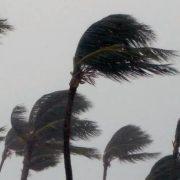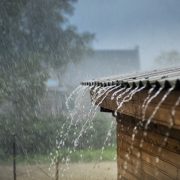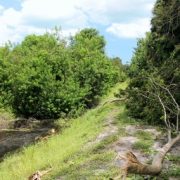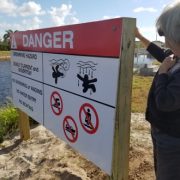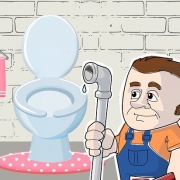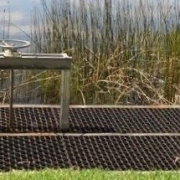Your Health & Flood Water
Summertime rainstorms can bring heavy rainfall with localized ponding in swales, roadways and front yards. These low-lying areas are designed to hold stormwater to keep our homes dry. But weather is unpredictable and severe rainfall in a short period of time may overwhelm the drainage system causing flooding.
Should you encounter flood water, remember that basic hygiene is critical. Wash your hands with soap and water that has been boiled or disinfected before preparing or eating food, after toilet use, after participating in flood cleanup activities and after handling articles contaminated with flood water.
Avoid eating or drinking anything that has been in contact with flood water. Flood water may be contaminated with fecal matter or other pollutants, so do not wade through, or allow children or pets to play in standing water. If you have any open cuts or sores and cannot avoid contact with flood water, keep them as clean as possible by washing with soap to control infection. If a wound develops redness, swelling or drainage, seek immediate medical attention.
Remove and discard absorbent household materials, such as curtains, rugs, and Sheetrock. Clean all walls and hard-surfaced floors with soap and water and disinfect with a solution of 1/4 cup of bleach to one gallon of water. Thoroughly disinfect surfaces where food may come into contact such as counter tops, refrigerators, and tables. Wash all linens and clothing in hot water.
Saturated ground soil can place stress on residential septic systems. If on a septic system and your plumbing is functioning slowly there may be a problem with too much ground water. To help reduce the stress on the septic system, conserve water as much as possible. The less water used the less water the septic tank must process. Do not have the septic tank pumped as exceptionally high-water tables might crush a septic tank that was pumped dry.
During severe weather events, the Lake Worth Drainage District (LWDD) monitors the canal water elevations and makes operational adjustments to the system. However, we still want to hear from residents and businesses within our boundary who may be experiencing flooding issues. Report flooding by calling the main office number 561-498-5363 or sending an email to eoc@lwdd.net.


